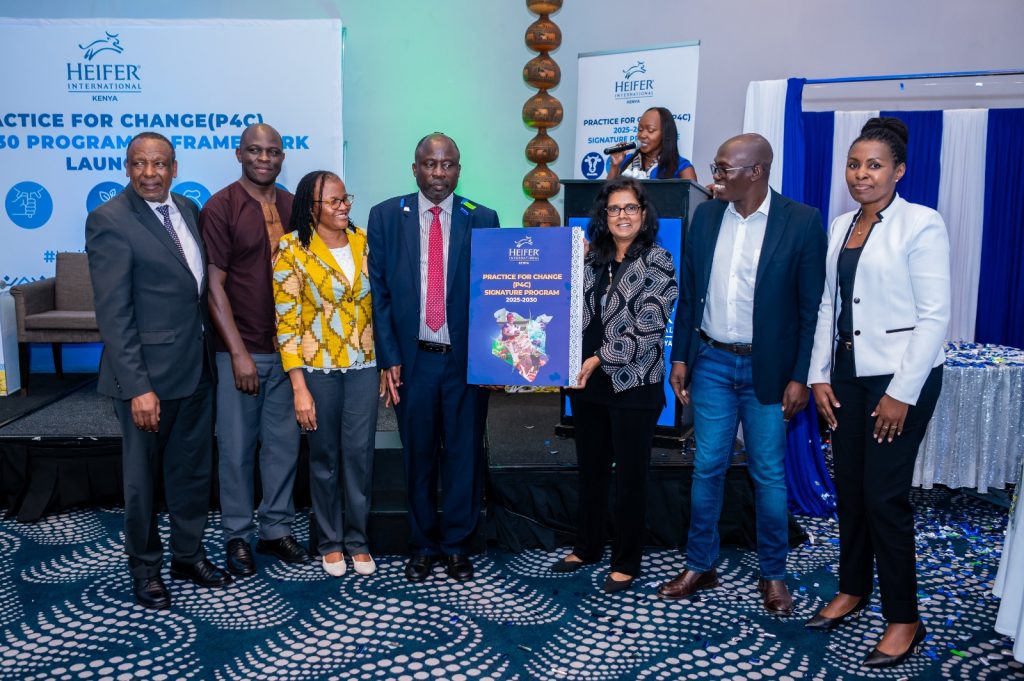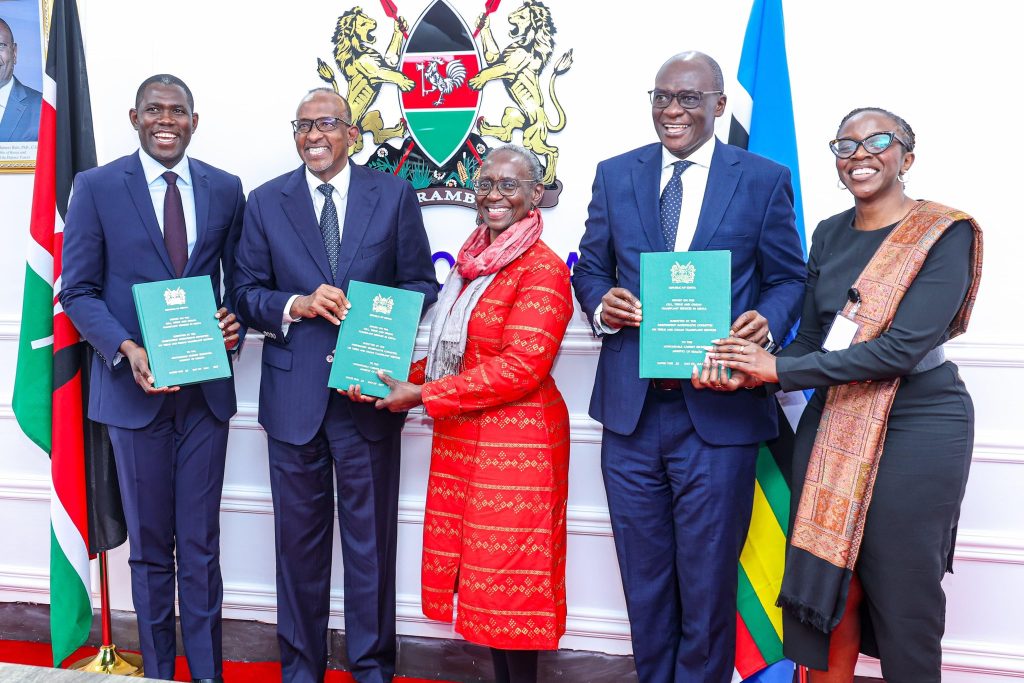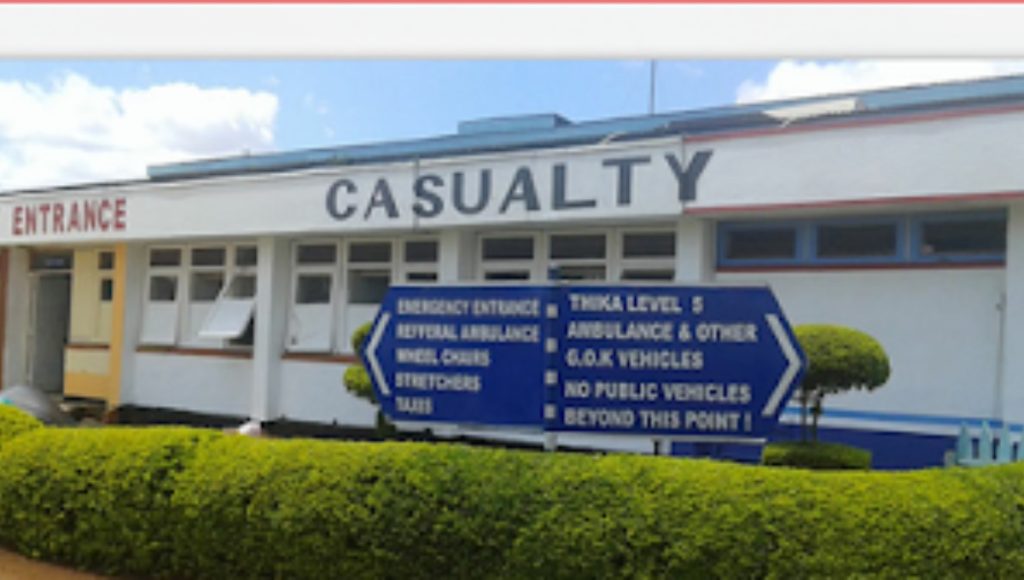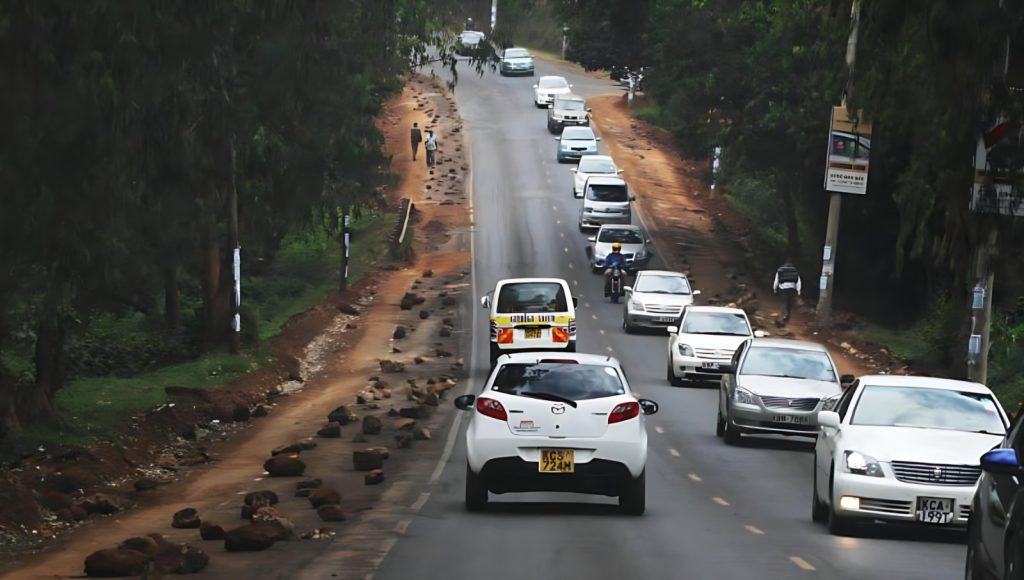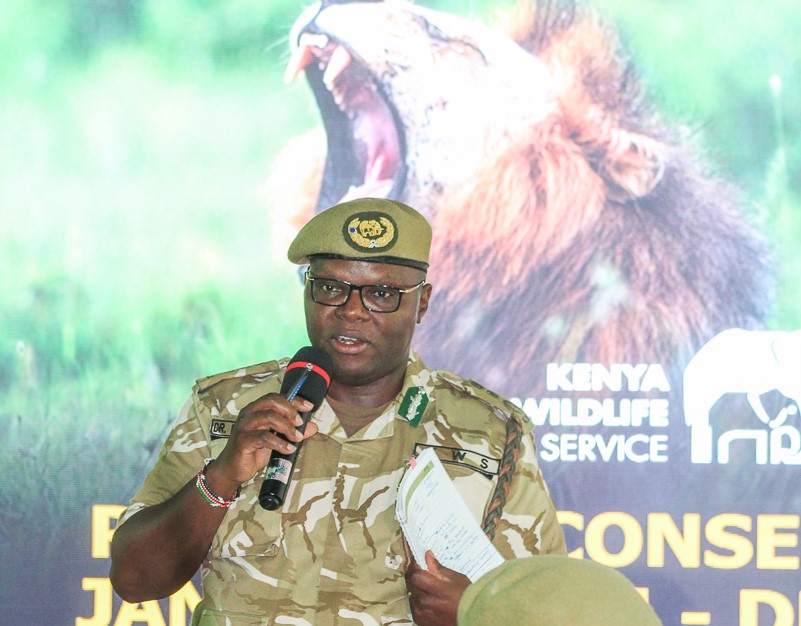Nairobi, April 11, 2025 — Heifer International Kenya has launched its Practice for Change (P4C) Signature Program, a $95.7 million (KSh12.415 billion), five-year initiative to help 625,000 smallholder farming households achieve sustainable living incomes by 2030.
The P4C Program will operate across over 26 counties, focusing on key agricultural value chains: poultry, dairy, beef, and horticulture. These sectors have been identified for their potential to drive economic growth and improve livelihoods in rural communities.
Government leaders, development partners, private sector actors, and farmer organizations attended the launch in Nairobi, highlighting their commitment to sustainable agriculture. The event emphasized the importance of collaborative, locally led development and the program’s alignment with Kenya’s national priorities, including agricultural transformation, youth employment, and climate resilience.
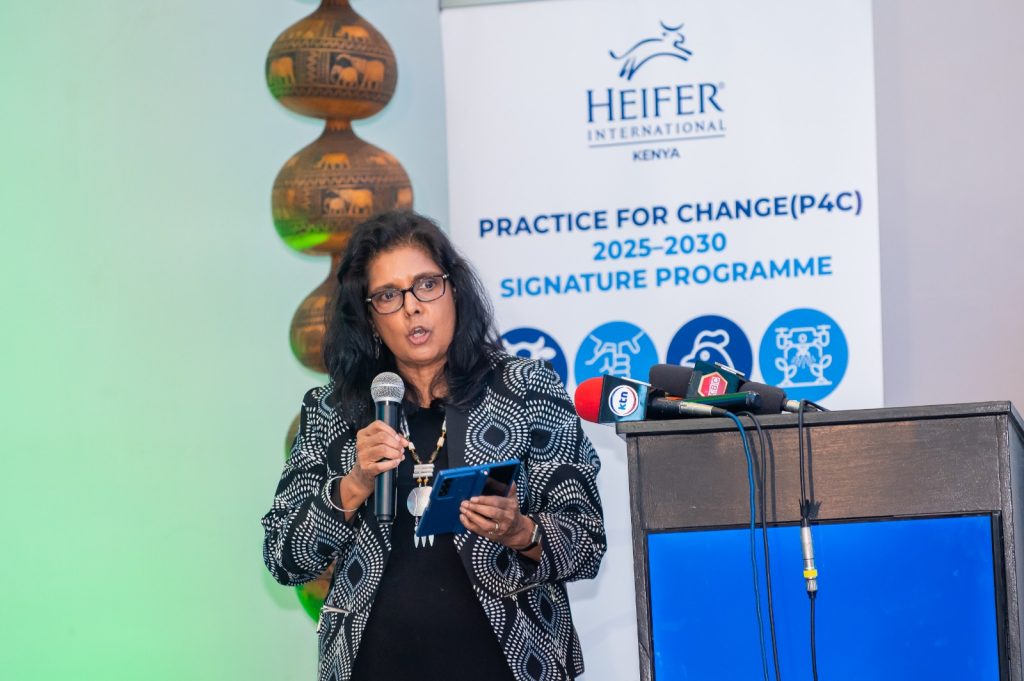
Surita Sandosham, President and CEO of Heifer International, reaffirmed the organization’s commitment to locally led development as essential for sustainable change. “The ambition of P4C is significant, matched by an expected investment of over $95 million through Heifer’s resources, catalytic capital, and co-managed funds with donors and public institutions,” said Sandosham. “We are proud to collaborate with national and county governments, farmer cooperatives, development partners, and private enterprises to achieve shared outcomes. We believe that strategic partnerships, built on trust, transparency, and shared value, are crucial for scaling effective solutions and creating lasting impact.”
Running from 2023 to 2030, the P4C program builds on Heifer Kenya’s 44-year history and aligns with national development priorities, including Kenya Vision 2030 and the Bottom-Up Economic Transformation Agenda (BETA). It aims to address key challenges in agriculture by focusing on four pillars: strengthening farmer organizations, increasing agricultural productivity, enhancing the profitability of farmer-owned enterprises, and expanding access to markets.
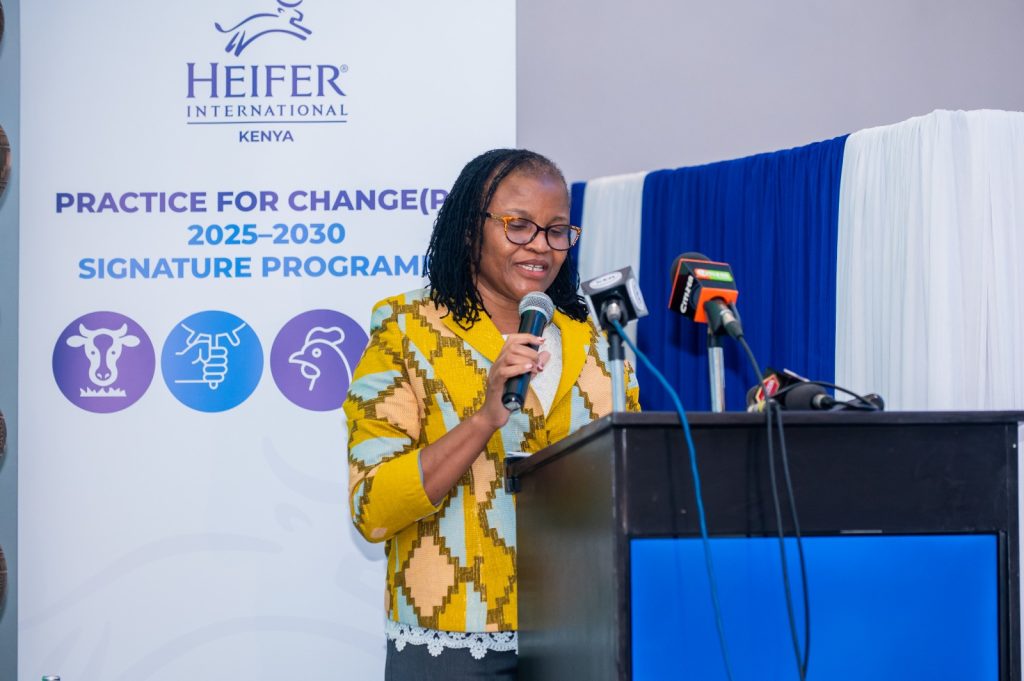
Heifer Kenya’s Interim Country Director, Clarice Bugo-Kionge, explained how the program utilizes proven models while incorporating new approaches to achieve widespread impact. “Our 44-year journey has been transformative, and we have learned through experience,” said Bugo-Kionge. “Through a hands-on approach, we have developed an innovative model that drives systemic change, improving smallholder farmers’ access to finance and creating opportunities within their communities.”
Smallholder farmers, despite their vital role in food security, face a significant financing gap. According to the African Development Bank, the agricultural sector in Africa has an annual financing shortfall of $75 billion.
To address this, Clarice emphasized the need for efficient and scalable solutions. “We must support our smallholder farmers to strengthen Kenya’s food security and unlock rural prosperity. Heifer’s flagship programs are designed to bridge this gap by facilitating access to capital, technology, and markets.”
Speaking at the launch, Dr. Christopher Wanga, EBS, Director of Livestock Policy Research and Regulations at the Ministry of Agriculture and Livestock Development, affirmed the government’s support for the initiative. He emphasized the program’s alignment with national development priorities and commended Heifer’s strategic five-year approach.
Ainabkoi Farmers’ Cooperative Society Chair, Stephen Tirop, expressed strong support for the P4C program, highlighting its potential to improve rural livelihoods. “This initiative offers hope for hundreds of thousands of smallholder farmers who face daily challenges in accessing markets, improving productivity, and building resilient businesses,” said Tirop. “Many aspects of this program will help us transition from subsistence farming to competitive, sustainable agri-enterprises.”
The P4C program prioritizes inclusive growth, with a particular focus on empowering women and youth. It also integrates environmentally sound and climate-smart agricultural practices to ensure sustainability while increasing productivity.



